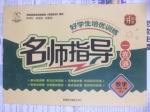题目内容
_____ of the world’s books and newspapers are written in English.
- A.Three quarter
- B.Three of quarters
- C.Third fourths
- D.Three fourths
分数的表示方法是:分子用基数词,分母用序数词。当分子大于1时,分母要加s。注意以下一些特殊的分数形式:a/one half二分之一; a/one quarter四分之一;five and a half五又二分之一。

 新思维小冠军100分作业本系列答案
新思维小冠军100分作业本系列答案 名师指导一卷通系列答案
名师指导一卷通系列答案| 1.Needed:Full time secretary position available.Applicants should be able to type 60 words a minute.No computer skills required.Apply in person at United Business Ltd.,17 Browning Street. | 2.Are you looking for a part time job?We require 3 part time shop assistants to work during the evening.No experience is required,applicants should be between 18 and 26.Call 366-76564 for more information. |
| 3.Computer trained secretaries:Do you have experience working with computers?Would you like a full time position working in an exciting new company?If your answer is yes,call 457-896754. | 4.Teacher needed:Tommy's Kindergarten needs 2 teachers/trainers to help with classes from 9 a.m.to 3 p.m.Applicants should have appropriate licenses(许可证).For more information visit Tommy's Kindergarten in Leicester Square No.56. |
| 5.Part time wor available:We are looking for retired adults who would like to work part time at the weekend.Responsibilities include answering the telephone and giving customers information.For more information contact Nile Airlines by calling 345-674132. | 6.University positions open:The University of Cumberland is looking for 4 teaching assistants to help with homework correction.Applicants should have a degree in one of the following:Political Science,Computer Science,Economics or History.Please contact the University of Cumberland for more information. |
Suppose you are a first-year student who wants to earn some money to pay your university expenses,you may_________.
A.call 345-674132
B.call 366-76564
C.contact United Business Ltd
D.contact Cumberland University
According to the advertisements,which of the following is TRUE?
A.Experience is required if you want to work as a shop assistant.
B.You may be employed by United Business Ltd.if you can type fast enough.
C.You are sure to get a job at Tommy's Kindergarten if you have a degree.
D.Nile Airlines needs a peson to deal with customers' information.
Who are the advertisements intended for?
A.Job hunters. B.College graduates.
C.Retired teachers. D.Computer majors.
Steve and Yaser first met in their chemistry class at an American university. Yaser was a(an) 36 student from Jordon. He wanted to learn more about American culture and hoped that he and Steve would become good friends. At first, Steve seemed very friendly. He always 37 Yaser warmly before class. Sometimes he 38 invited Yaser to eat lunch with him. But Steve seemed 39 after the first term was over. The two 40 classmates didn’t see each other very much at school. One day Yaser decided to call Steve. Steve didn’t seem very 41 in talking to him. Yaser was hurt by Steve’s change of 42 . “Steve said we were friends, ”Yaser complained(抱怨), “and I thought friends were friends 43 . ”Yaser is a little 44 . As a foreigner, he doesn’t understand the way Americans 45 friendship. Americans use the wor“friend”in a very 46 way. They may call both casual acquaintances(相识的人)and close 47 “friends”. These friendships are 48 on common interests. When the 49 activity ends, the friendship may fade. Now as Steve and Yaser are no longer classmates, their“friendship”has changed. In some cultures friendship 50 a strong life-long connection between two people. In these cultures friendships develop slowly, since they are built to 51 . American society is one of 52 change. Studies show that one out of five American families moves every year. American friendships develop quickly, and they may change just 53 quickly. Americans may at first seem friendly. But American friendliness is not always a(an) 54 of true friendship. Learning how Americans look at friendship can help non-Americans 55 misunderstandings.
| B. native | C. international | D. home |
| B. welcomed | C. invited | D. received |
| B. even | C. never | D. seldom |
| B. helpful | C. grateful | D. distant |
| B. normal | C. unusual | D. ordinary |
| B. shocked | C. interested | D. disappointed |
| B. relation | C. opinion | D. attitude |
| B. for once | C. for a time | D. for a while |
| B. confused | C. frightened | D. impressed |
| B. form | C. view | D. like |
46. A. general | B. unique | C. usual | D. strict |
47. A. relatives | B. companions | C. classmates | D. workmates |
48. A. depended | B. based | C. focused | D. set |
49. A. shared | B. connected | C. combined | D. chosen |
50. A. contains | B. damages | C. includes | D. means |
51. A. enjoy | B. last | C. appreciate | D. value |
52. A. slow | B. steady | C. rapid | D. similar |
| B. too | C. as | D. so |
| B. offer | C. advice | D. idea |
| B. ignore | C. forbid | D. forgive |
Steve and Yaser first met in their chemistry class at an American university. Yaser was a(an) 36 student from Jordon. He wanted to learn more about American culture and hoped that he and Steve would become good friends. At first, Steve seemed very friendly. He always 37 Yaser warmly before class. Sometimes he 38 invited Yaser to eat lunch with him. But Steve seemed 39 after the first term was over. The two 40 classmates didn’t see each other very much at school. One day Yaser decided to call Steve. Steve didn’t seem very 41 in talking to him. Yaser was hurt by Steve’s change of 42 . “Steve said we were friends, ”Yaser complained(抱怨), “and I thought friends were friends 43 . ”Yaser is a little 44 . As a foreigner, he doesn’t understand the way Americans 45 friendship. Americans use the wor“friend”in a very 46 way. They may call both casual acquaintances(相识的人)and close 47 “friends”. These friendships are 48 on common interests. When the 49 activity ends, the friendship may fade. Now as Steve and Yaser are no longer classmates, their“friendship”has changed. In some cultures friendship 50 a strong life-long connection between two people. In these cultures friendships develop slowly, since they are built to 51 . American society is one of 52 change. Studies show that one out of five American families moves every year. American friendships develop quickly, and they may change just 53 quickly. Americans may at first seem friendly. But American friendliness is not always a(an) 54 of true friendship. Learning how Americans look at friendship can help non-Americans 55 misunderstandings.
36. A. American | B. native | C. international | D. home |
37. A. greeted | B. welcomed | C. invited | D. received |
38. A. ever | B. even | C. never | D. seldom |
39. A. familiar | B. helpful | C. grateful | D. distant |
40. A. former | B. normal | C. unusual | D. ordinary |
41. A. excited | B. shocked | C. interested | D. disappointed |
42. A. mind | B. relation | C. opinion | D. attitude |
43. A. for ever | B. for once | C. for a time | D. for a while |
44. A. delighted | B. confused | C. frightened | D. impressed |
45. A. express | B. form | C. view | D. like |
46. A. general | B. unique | C. usual | D. strict |
47. A. relatives | B. companions | C. classmates | D. workmates |
48. A. depended | B. based | C. focused | D. set |
49. A. shared | B. connected | C. combined | D. chosen |
50. A. contains | B. damages | C. includes | D. means |
51. A. enjoy | B. last | C. appreciate | D. value |
52. A. slow | B. steady | C. rapid | D. similar |
53. A. very | B. too | C. as | D. so |
54. A. suggestion | B. offer | C. advice | D. idea |
55. A. avoid | B. ignore | C. forbid | D. forgive |
